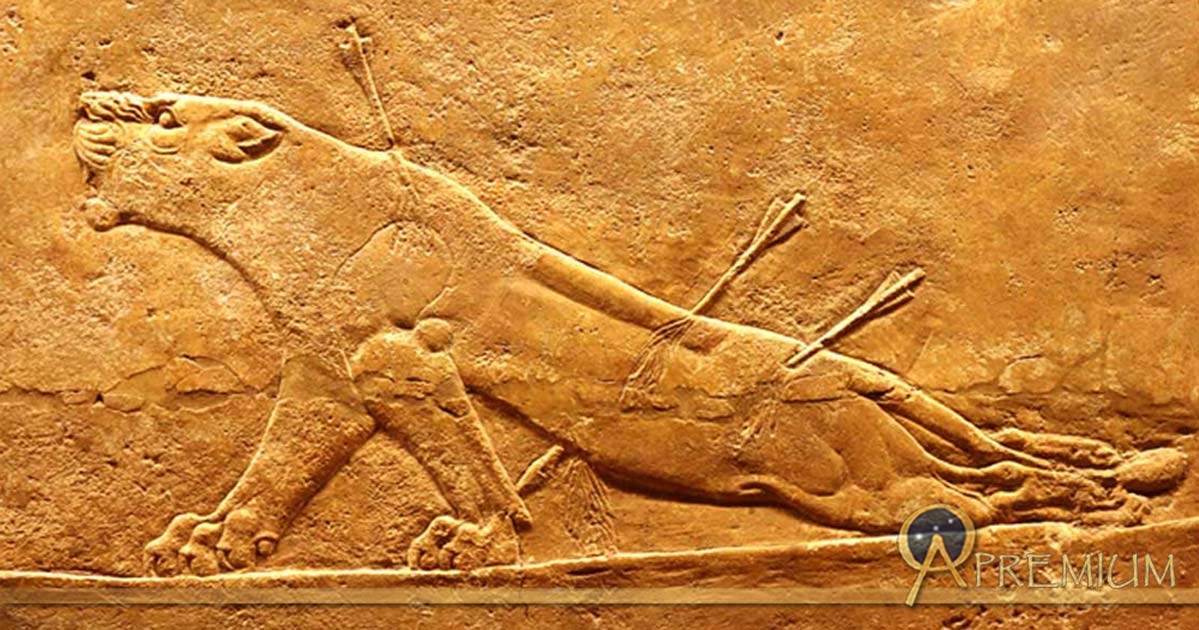 From the time he became king, until his death, wars and revolts were
commonplace throughout his empire. One could easily speculate that Ashurbanipal
in fact died from pure exhaustion due to the series of wars he led. His army
was stretched, exhausted, and depleted from conducting military operations.
From the time he became king, until his death, wars and revolts were
commonplace throughout his empire. One could easily speculate that Ashurbanipal
in fact died from pure exhaustion due to the series of wars he led. His army
was stretched, exhausted, and depleted from conducting military operations.
One of the sons, Sin-shar-ishkun, prepared an army and marched towards Babylon, hoping to regain control of the region. But another massive rebellion broke out in Assyria, and Sin-shar-ishkun was forced to return to defend his throne. This meant that Nabopolassar had time to gather his forces to take on the Assyrians. The Chaldeans entered into an alliance with the Medes (another former vassal of the Assyrians), the Scythians, and the Cimmerians.
In 616 BC, Nabopolassar and his allies went on the offensive, attacking the Assyrians. Assur was sacked in 614 BC, and two years later, the Assyrian capital of Nineveh fell as well. Although this was a huge blow to the Assyrians, their empire did not come to an end, as those who remained fled to Harran, where Ahsur-uballit was installed as the new Assyrian ruler. The Assyrians fled once more, this time to Carchemish, which was under the control of the Egyptians.
The remaining Assyrians made their last stand at Carchemish. The Egyptian pharaoh, Necho II, sent an army to aid the Assyrians. This episode is recorded in 2 Chronicles 35:20-24 where Josiah sided with the Babylonians and fought against the Egyptians as they were journeying northwards along the Mediterranean coast through Josiah’s territory. Josiah lost his life, but the Egyptian army was also disrupted by the battle.
Despite the aid of the Egyptians, the Assyrians were defeated by Nabopolassar’s son, Nebuchadnezzar, at the Battle of Carchemish in 605 BC. Nabopolassar died in the same year, or in the following year, and was succeeded by Nebuchadnezzar.
“The king of Akkad mustered his army and marched to Assyria. The king of the Medes marched towards the king of Akkad and they met one another at [...]u. The king of Akkad and his army crossed the Tigris; Cyaxares had to cross the Radanu, and they marched along the bank of the Tigris. In the month Simanu [May/June], the Nth day, they encamped against Nineveh. “From the month Simanu until the month Âbu [July/August] -for three months- they subjected the city to a heavy siege. On the Nth day of the month Âbu they inflicted a major defeat upon a great people. At that time Sin-šar-iškun, king of Assyria, died. They carried off the vast booty of the city and the temple and turned the city into a ruin heap The [lacuna] of Assyria escaped from the enemy and, to save his life, seized the feet of the king of Akkad. “On the twentieth day of the month Ulûlu [14 September 612] Cyaxares and his army went home.” The Fall of Nineveh Chronicle